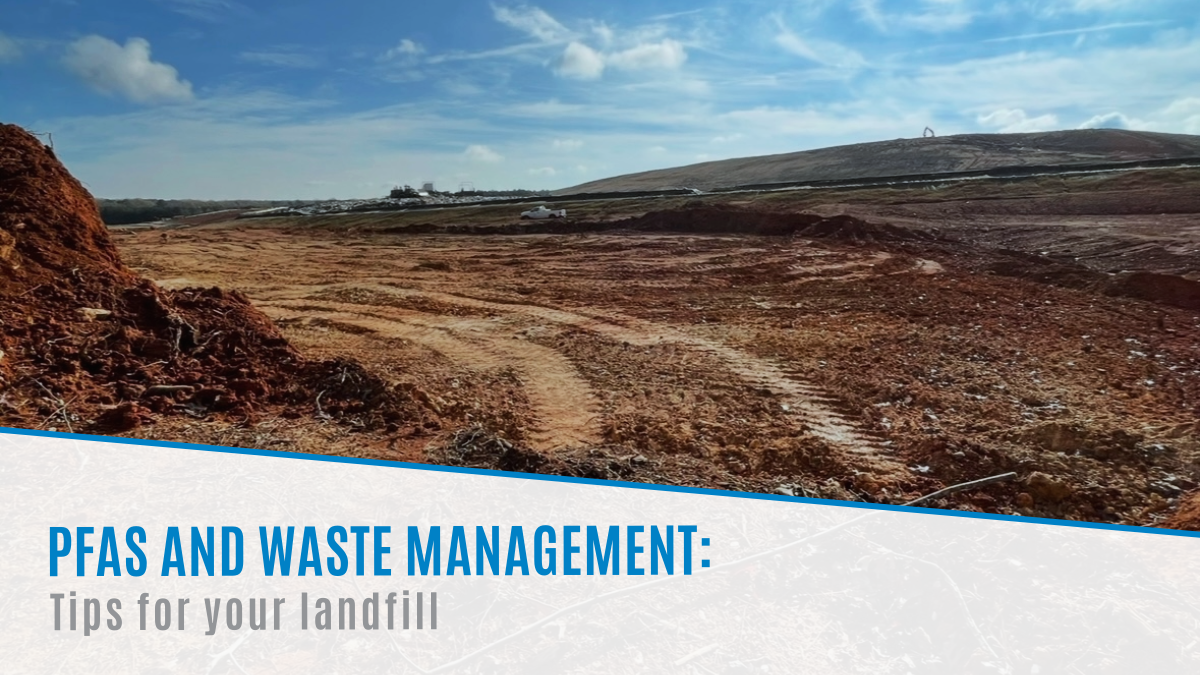 As of March 2023, the North Carolina Department of Environmental Quality (NCDEQ) mandated that solid waste sanitary landfills include per- and polyfluoroalkyl substances (PFAS) analyses in their routine monitoring of groundwater, surface water and leachate samples in an effort to assess PFAS presence in the environment resulting from landfill operations.
As of March 2023, the North Carolina Department of Environmental Quality (NCDEQ) mandated that solid waste sanitary landfills include per- and polyfluoroalkyl substances (PFAS) analyses in their routine monitoring of groundwater, surface water and leachate samples in an effort to assess PFAS presence in the environment resulting from landfill operations.
Other states such as Michigan and New Jersey have since followed suit with their own regulations monitoring PFAS in landfills. PFAS, also known as “forever chemicals” have been linked to various health concerns, including liver damage and increased risk of certain cancers. As a result, PFAS and waste management is a growing focus of environmental monitoring and regulation.
Waste management regulatory requirements
Environmental regulations governing landfills reduce impacts to the environment and continue to be a priority when it comes to reducing the environmental footprint in sectors such as waste management. Landfill regulatory compliance refers to federal, state and local laws and regulations that govern the operation and management of landfills.
These regulations are designed to decrease environmental impacts, protect public health and establish secure and efficient waste disposal practices. Although regulations may vary from state to state, the U.S. Environmental Protection Agency (EPA) provide laws, regulations and technical guidance for various municipal solid and hazardous waste landfills nationwide.
Types of landfills:
- Subtitle D landfills include:
- Municipal solid waste landfills (MSWLFs) equipped to receive household and non-hazardous waste.
- Industrial waste landfills intended to handle commercial and institutional waste.
- Construction and demolition (C+D) landfills designed to collect construction and demolition materials.
- Subtitle C landfills are listed under the Resource Conservation and Recovery Act (RCRA). These landfills are specifically created to receive hazardous waste including batteries, pesticides and certain industrial byproducts.
PFAS and waste management compliance
Environmental compliance monitoring is an important step in making sure proper waste disposal and protecting human health and the environment. Some of the key areas of compliance for landfills, specifically MSWLFs, often include:
- Permitting: Landfills are required to obtain permits prior to operation. These permits outline specific conditions and limitations such as the type of waste the facility is allowed to acquire and the maximum amount of waste that can be disposed.
- Leachate Management: Leachate is formed when rainwater filters through waste materials within a landfill and can contain harmful contaminants. Landfills are required to have systems in place to collect and treat leachate to intercept contamination of groundwater and nearby water sources such as streams.
- Environmental Monitoring: Landfills are typically required to monitor local environmental conditions such as air and water quality. Environmental monitoring generally includes the collection of groundwater, surface water, underdrain, leachate samples and methane monitoring. This monitoring normally requires sampling to be conducted on a semi-annual basis while the landfill is operational and typically continues for 30 years after the closure of a landfill.
ECS has your back by offering these PFAS and waste management holistic services to keep you compliant:
- PFAS Assessment and Monitoring Program Assistance
- RCRA Hazardous and Universal Waste Management
- Landfill Support Services
- Hydrogeologic and Groundwater Services
- Soil and Groundwater Assessments
ABOUT THE EXPERT
Kelsey Vassallo has more than ten years of experience in the environmental and energy field – three of these years were spent in the oil and gas industry. Ms. Vassallo has extensive knowledge in compliance monitoring, gas line installations and environmental assessments as well as federal, state and local regulations.
Our experts stand ready to collaborate with clients on PFAS and waste management monitoring programs, due diligence and compliance needs. By partnering with ECS, companies can benefit from seamless adaptation to the new regulations, positioning themselves for compliance within the anticipated timeframe. Contact us to schedule an initial consultation.

